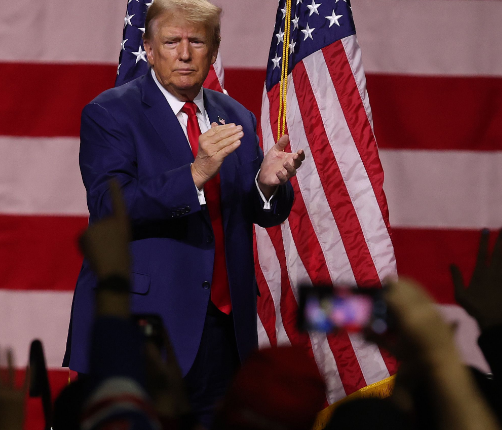In an unexpected turn of events that has sent ripples through the political landscape, Donald Trump, the former President and a prominent figure in the Republican Party, finds himself excluded from Nevada’s 2024 Republican primary ballot. This development, while surprising, isn’t the result of legal actions or eligibility concerns based on the 14th Amendment. Instead, it boils down to a simple yet crucial oversight: Trump’s campaign did not submit the necessary application to be included on the ballot. This incident not only raises questions about the campaign’s organizational efficacy but also highlights the complex interplay of political strategy and electoral processes in the United States.
The Absence of Legal Challenges
Contrary to what might be expected in such scenarios, there have been no legal rulings against Trump’s eligibility to participate in Nevada’s primary. This sets the state apart from others like Colorado, where legal challenges regarding the 14th Amendment, which prohibits individuals involved in insurrection from holding office, have been more prominent. In Nevada, the Supreme Court and Secretary of State Cisco Aguilar, a Democrat, did not address Trump’s eligibility, unlike their counterparts in other states like Maine.

The Role of the Nevada GOP
The decision to exclude Trump from the ballot is rooted in the actions of the Nevada GOP, which has taken a unique approach to the 2024 presidential primaries. The state party, in a departure from the traditional primary election process used for other Republican candidates, including the governor, warned presidential campaigns about the consequences of appearing on the primary ballot. This warning indicated that candidates listed on the primary ballot would be ineligible to participate in or receive delegates from the caucus. This strategic move by the Nevada GOP reflects a broader tension within the party, as it navigates the evolving political landscape and the influence of key figures like Trump.
The Shift from Caucuses to Primaries
Nevada’s political arena has been undergoing significant changes, most notably the shift from caucuses to primaries. This transition, propelled by the Democratic Party’s push for a more streamlined and accessible electoral process, has reshaped the state’s political dynamics. The Nevada GOP’s decision to deviate from this new norm further complicates the picture, especially considering the relatively smooth execution of the Democratic caucuses in 2020, which were described as having “mostly worked.”
Implications for Trump’s Campaign
The exclusion from Nevada’s primary ballot has considerable implications for Trump’s campaign. It highlights a potential vulnerability in the campaign’s organizational structure and raises questions about its strategic planning. Moreover, it may signal a broader shift within the Republican Party, as state organizations grapple with Trump’s influence and the direction of the party moving forward.
Legal Challenges in Other States
This development in Nevada occurs against the backdrop of ongoing legal challenges to Trump’s eligibility in other states. These challenges, often centered around his actions during and after the 2020 election, have the potential to significantly impact his campaign. They bring to the fore the debate over the constitutional requirements for holding office, particularly in the context of the 14th Amendment.
The Intricacies of the American Presidential Election System
Trump’s exclusion from the Nevada primary also serves as a lens through which to examine the complexities of the American presidential election system. This system, characterized by its indirect nature and winner-take-all approach in most states, presents a unique set of challenges for presidential candidates. The concept of faithless electors – electors who vote against the candidate they are pledged to support – adds another layer of unpredictability to the process. In Nevada, for instance, electors are statutorily required to vote for the candidate who received the highest number of votes in the state, a rule not universally applied across the country.
Read More:
- The Fight for LGBTQ Rights: The Case of Ohio’s Anti-Trans Bill Veto
- The Endangered Species Act: A Triumph of Conservation in Northwest Ohio Introduction
- Georgia Rent Increase Laws 2024: Empowering Tenants in a Dynamic Housing Landscape
The exclusion of Donald Trump from Nevada’s 2024 Republican primary ballot is more than a mere administrative oversight; it’s a reflection of the intricate interplay between political strategy, party dynamics, and the complex electoral system in the United States. As the 2024 presidential race heats up, this incident in Nevada serves as a reminder of the multifaceted nature of political campaigns and the various forces that shape their trajectories. It underscores the importance of not only legal eligibility but also strategic foresight and organizational efficiency in navigating the challenging waters of American politics.

